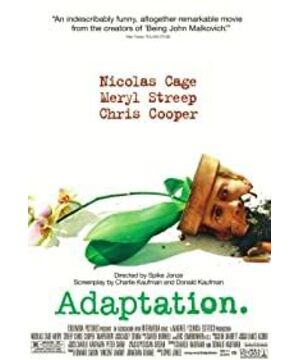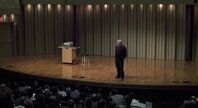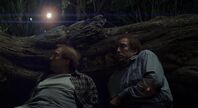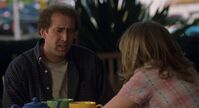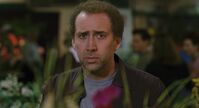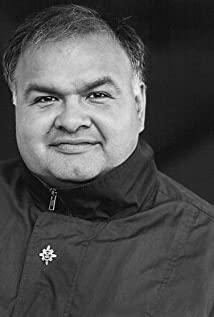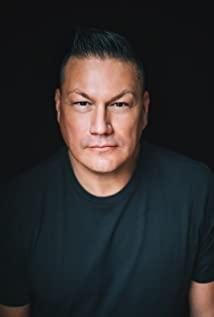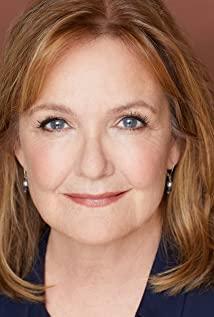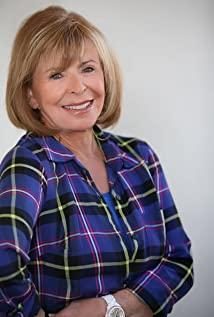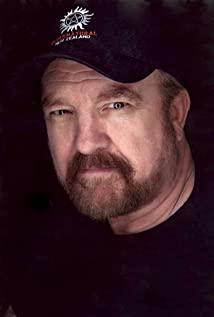After reading some online reviews, some say that this is a confrontation and satire with traditional Hollywood, and some say that this is an interpretation of dreams, an interesting expression of schizophrenia... For movies, you find the point that you think is right, which is actually enough. . Of course, for comments like these, I will send a "hehe" first.
Not much to say, most of this movie really wants to challenge the shooting methods of traditional movies. To put it bluntly, the screenwriter really doesn’t want to execute the story as McKee explained. This approach does make the movie more interesting. Get up, but interesting is not the same as story, just like the contrast between "emotions and feelings" in McKee's book, interesting may be "emotions", and stories will become "emotions". However, in terms of plot arrangement, the screenwriter did not break away from McKee's elaboration of anti-structure, so can he really get rid of "story" and "tradition"?
First of all, I have to admit that he did a really good job.
Screenwriter, Charlie Kaufman. The hero of the movie, Charlie Kaufman (Nicolas Cage), is a screenwriter.
This relationship alone is interesting enough.
The real Charlie Kaufman needs to write a script, named adaptation (Chinese translation adaptation script, orchid thief); the virtual Charlie Kaufman, in the movie plot, needs to adapt an orchid documentary book into a movie script.
We have reason to believe that the characters in the movie and the real characters have encountered the same problem - how to write the theme of "flower" into a good script.
Charlie Kaufman borrowed the screen to express many of his true thoughts: I don't want to chase cars, crime, pornography and other traditional Hollywood eye-catching vulgar ways; I want to write "flowers" to the extreme; I have all kinds of Crazy flashes of ideas, montages of all things changing, writing yourself into the script...
Unconventional can be seen everywhere, but we have to admit that the jumping timeline in the first half and the large number of character dialogues and voiceovers did not turn the film's progress into ups and downs to attract attention, but almost irrelevant. Whether it is Kaufman himself-- His character desire is to write the script well, but it doesn't seem to be possible (of course he also wants to meet the girl papapa); another timeline, which is also the inspiration for the protagonist's script, the New Yorker female reporter, in the first half of the desire is only to find " Orchid Pirates" and reported for him, no conflict so no ups and downs.
Story-wise, it's boring; but in terms of plot (anti-structural), the director and writers keep this episode entertaining enough to keep the eye open.
At this point, if there is no reversal of the characters and no "story", the film is really about to rot. As mentioned above, although the director used interesting plot arrangements to "narrate" (a commonplace meal without conflict), But still no story, what now?
As mentioned in McKee's book, any interesting story must give the character enough pressure and conflict to let him choose in the conflict to achieve the effect of empathy for the audience.
Interesting stories are coming.
The protagonist of the film, Charlie Kaufman, can't find the right direction in his chaotic script. After more than half of the film, he really didn't tell a story, and he fell into the most desperate situation (pressure) in his career. What should I do? , who can save him, and what will he choose? ...Well, the imaginary character in the movie, the second male, the male protagonist's younger brother (also played by Nicholas Cage), with a lot of foreshadowing (of course, the screenwriter deliberately arranged it), Kaufman chose to meet McKee ( If there is no contrast of his younger brother in the film, the male protagonist would not choose to meet McKee, the character construction here is very ingenious and natural) The
whole movie also made a huge turning point from the male protagonist meeting McKee.
First of all, the time line is flattened, and the anti-structural plot method is no longer used, but the traditional big plot method (coherent timeline, the perspective of the individual protagonist), and the film no longer uses flashbacks, dreams and other methods to break the concept of time - test The timeline of the stories of Furman and the New Yorker female reporter is connected
Secondly, there is a huge gap in the story, betrayal, drugs, derailment, car chase, escape, beasts... Each point can create a different gap between the characters and the expected, causing people to associate and imagine. Of course, the plot here begins, and here is the huge gap between the real Kaufman and the screen Kaufman: if the first half of the screen male protagonist is the screenwriter himself, then from the second half, the screen male protagonist is purely a fiction of the screenwriter— In the
final ending of -adaption , the male protagonist drove away, with a voice-over "I shouldn't have used so many narrations, well, I did, so what." This is the closed end of the big plot, but here the screenwriter opens it up to the audience again It's a little joke, the screenwriter put his own thoughts on the male protagonist on the screen, and it is indeed a satire on the pulse of the traditional film structure, it seems like - Mackey, I won't do what you do, I can still do it So good...
well, the story is simple: the writer wrote a script about the writer wanting to change a script.
But really get out of McKee's story frame? Hehe, if you have it in your heart, then the director and writer's shenanigans have succeeded.
Forget all the plot and the inner hints on the screen, and look at the structure of the whole movie step by step, how he conveys this simple story to your mind, you are not completely confused, you seem to see the characters Arc light, seems to see the wonderful ring structure... I believe, you will find the answer in McKee's book.
The talented director and screenwriter used their own way of respecting the teacher to complete the bold satire of the teacher. This is definitely not traditional Hollywood, but this is definitely a traditional McKee-style "story".
View more about Adaptation. reviews


